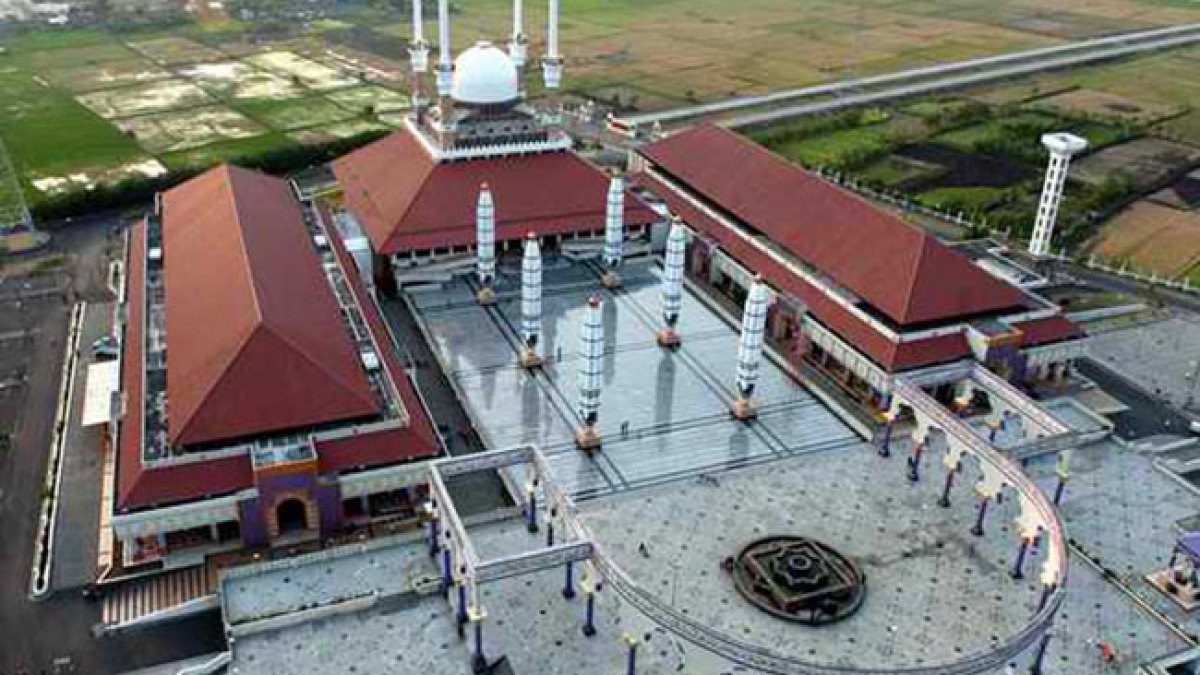Islam, Prophets and Mosques

Islam is the truth which Allah made man's permanent companion on the earth as soon as he was sent to it, on account of that truth being meant for him. Numerous prophets from different epochs and in different geographical settings were chosen to perform the task of conveying and explaining the truth of Islam to people. The long process commenced with Adam, the first man and prophet on earth, and came to an end with Prophet Muhammad (pbuh), the seal of prophets, after humankind had reached a point where a final, universal, eternal, and all-inclusive divine message was possible. The essence of all the prophets' teachings was one and the same, as it always must be the case with the truth; only falsehood and lies live through discrepancies and inconsistencies. Never was there a greater occasion gracing the earth and all of its inhabitants than sending a new prophet and with him a new heavenly message to people, after the light of a previous one had already been either obscured or completely extinguished. This everlasting unity of prophethoods and Islamic faith, Allah emphasizes time and again in the Qur'an, affirming, for example, "We did not send before you any messenger but We revealed to him that there is no god but Me, therefore serve Me" (al-Anbiya', 21:25).
"He has made plain to you of the religion what He enjoined upon Nuh and that which We have revealed to you and that which We enjoined upon Ibrahim and Musa and Isa that keep to obedience and be not divided therein; hard to the unbelievers is that which you call them to." (al-Shura, 42:13).
"Surely We have revealed to you as We revealed to Nuh, and the prophets after him, and We revealed to Ibrahim and Ismail and Ishaq and Yaqub and the tribes, and Isa and Ayub and Yunus and Harun and Sulayman and We gave to Dawud. And (We sent) messengers We have mentioned to you before and messengers we have not mentioned to you; and to Musa, Allah addressed His Word, speaking (to him). (We sent) messengers as the givers of good news and as warners, so that people should not have a plea against Allah after the (coming of) messengers; and Allah is Mighty, Wise" (al-Nisa', 4:163-165).
The truth is only one, and so is God, its source. The origins, meaning and purpose of life with all of its units, including human beings, furthermore, are also one and the same, reverberating the disposition of the heavenly paradigm from which it originated. Hence, the mosque institution too, which symbolizes most emphatically the dynamic presence of the truth and its forces, and its relentless confrontation for supremacy with the falsehood and evil and the forces of their own, is as old as the truth itself and its protagonists. In other words, from the dawn of the human presence on the face of the earth, mosques had to feature prominently thereon. This is so because the truth and its people are always the cause and the mosque phenomenon is an effect. The two are inseparable. So strong is the relationship between them that they are destined to rise and fall together. Truly, if separated from each other, neither the truth with its devotees, nor the mosque can exist or survive on its own.
Once activated and made fully operational, mosques have the potential to be turned into their communities' guardians, the driving force and the heartbeat behind their progress. Mosques can become unrivaled community development centers. If neglected, however, Muslims will never be able to conjure an equivalent alternative to mosques, as the recent history of the Muslim world especially has shown. That said, it stands to reason, there will never be a Muslim community which will not experience a positive change if they change positively the status and functions of their mosques, i.e., if they positively change themselves and their relationships with their mosques, their lives' focal point. Similarly, there will never be a Muslim community which will not experience a negative change if they change negatively the status and functions of their mosques, i.e., if they negatively change themselves and their relationships with their mosques. Based on this strong and reciprocal relationship between mosques and Muslims, mosques are the mirrors of their communities' devotion to Islam and its cause. So, for a person to study a community's spiritual, cultural and civilizational major accomplishments, it will suffice for him to study the performances of that community's mosques only. In the same vein, studying a truly purposeful and serviceable mosque will offer without ambiguity an answer to a question "what is Islam?" because the mosque in Islam demonstrates on a practical plane what Islam on a theoretical plane stands for.
Accordingly, bracketing the phenomenon of true believers with the phenomenon of visiting and maintaining mosques, Allah says: "The mosques of Allah shall be visited and maintained (ya'muru) by such as believe in Allah and the Last Day, establish regular prayers, and practice regular charity, and fear none (at all) except Allah. It is they who are expected to be on true guidance" (al-Tawbah, 9:18).
The key word in this verse is 'amara, ya'muru which, according to Abdullah Yusuf Ali, if applied to the subject of the mosque implies the following: 1) to build or repair; 2) to maintain in fitting dignity; 3) to visit for purposes of devotion; and 4) to fill with light, life and activity.
Allah also says: "In houses (i.e., mosques) which Allah has permitted to be exalted and that His name may be remembered in them; there glorify Him therein in the mornings and the evenings, men whom neither merchandise nor selling diverts from the remembrance of Allah and the keeping up of prayer and the giving of poor-rate; they fear a day in which the hearts and eyes shall turn about" (al-Nur, 24:36, 37).
*****
Dr. Spahic Omer, a Bosnian currently residing in Malaysia, is an Associate Professor at the Kulliyyah of Architecture and Environmental Design, International Islamic University Malaysia. He studied in Bosnia, Egypt and Malaysia. His research interests cover Islamic history, culture and civilization, as well as the history and philosophy of the Islamic built environment. He can be reached at spahico yahoo.com; his blog is at www.medinanet.org.
Topics: Islam, Prophets Values: Honesty, Truthfulness
Views: 6383
Related Suggestions
Thank you all so very much

















